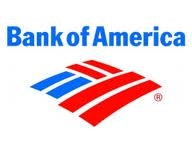A slew of big banks just passed another stress test, mandated under the Dodd-Frank reform law. This time, however, the tests weren’t overseen by the Federal Reserve, as they were during last March’s Comprehensive Capital Analysis and Review. These “mid-cycle” tests were both created and administered by the very same bank holding companies that took part in the Fed’s test — those with assets of $50 billion or more.
How did megabanks like Bank of America Corp (NYSE:BAC), Citigroup Inc (NYSE:C), JPMorgan Chase & Co (NYSE:JPM), and Wells Fargo & Co (NYSE:WFC) fare with these self-generated, self-administered tests? Not surprisingly, they all passed with flying colors.
Surpassing achievements from the Fed’s CCAR review
The tests are supposed to gauge the health of each institution under stressful scenarios generated by the banks themselves. The Fed will use the information gleaned from the tests to assist in its supervision of the banks, but is otherwise staying out of the picture.
Clearly, it is much easier to ace a test when you generate the template, and the banks named above all sailed through without a hitch. All used a severely stressful nine-quarter scenario in order to test their individual mettle, and all came out with robust Tier 1 common capital ratios. Wells Fargo & Co (NYSE:WFC) emerged with a 10.3% cushion after suffering loan losses of nearly $30 billion, while JPMorgan Chase & Co (NYSE:JPM) still retained a ratio of 9.4% after a $32 billion hit.
Bank of America Corp (NYSE:BAC) and Citigroup Inc (NYSE:C) also triumphed — the former with a capital ratio of 9.2% on $36.8 billion in losses, and the latter sporting a 9.4% capital cushion while enduring a loss of $43.1 billion.
As for the Tier 1 common stressed minimum values, things are looking better yet:
Tier 1 Common Minimum Capital Ratios
|
|---|
Sources: Bank presentations, Federal Reserve.
Scenario differs slightly
Have banks really come that far, that fast? Except for Citigroup Inc (NYSE:C), the minimum capital ratios banks could expect to support under the severely adverse scenario are much higher now than they were at the end of last year.
It’s true that banks have been working to bulk up their cushions. JPMorgan CEO Jamie Dimon noted that his bank expects to achieve a common ratio under Basel III of 9.5% by year’s end, based on the latest rules put forth by the Fed this past July. In its second-quarter earnings summary, Bank of America Corp (NYSE:BAC) also claims to have raised its Basel III common ratio to 9.6%, an increase from the prior quarter’s 9.52%.
While the banks are definitely making headway, it’s interesting that all four used a similar model for the projection of long-term interest rates — namely, that they would be heading downward during the scenario timeline.
This is, of course, the opposite of what is now happening, as well as a deviation from the previous Fed-supervised stress test, which specifically mentioned that both corporate borrowing rates and mortgage rates were to rise during the scenario’s timeline. Considering the effect rising rates are having on the mortgage refinance and origination business of the biggest banks — especially Wells and JPMorgan — using higher long-term rates may have been more realistic.
Still, this was a worthy exercise. Not only does it keep the issue of bank regulation and safety front and center, but it serves as a reminder of just how far the financial system has come since the crisis. Involving the banks in the creation of a stressful economic scenario, even if they give themselves a little break on the interest rate issue, keeps the remembrance of past mistakes fresh for the very institutions that need that timely reminder.
The article Surprise! Big Banks Pass Self-Administered Stress Tests originally appeared on Fool.com and is written by Amanda Alix.
Fool contributor Amanda Alix has no position in any stocks mentioned. The Motley Fool recommends Bank of America and Wells Fargo. The Motley Fool owns shares of Bank of America, Citigroup, JPMorgan Chase, and Wells Fargo.
Copyright © 1995 – 2013 The Motley Fool, LLC. All rights reserved. The Motley Fool has a disclosure policy.





